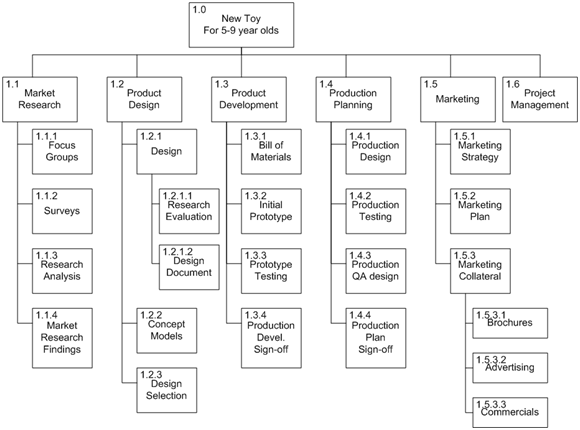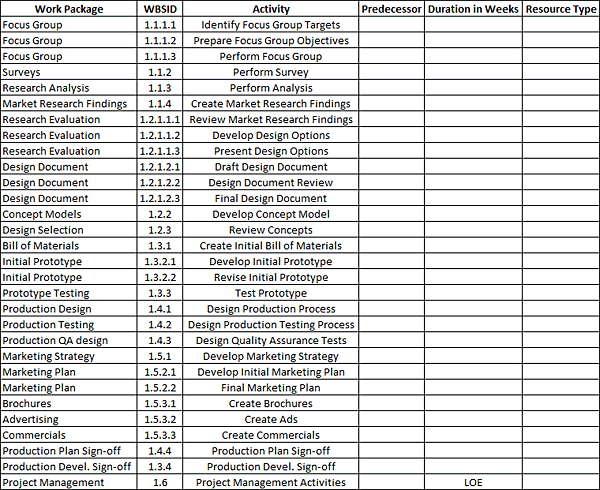Optimizing Project Delivery with Detailed Scheduling
The project schedule is the strategic document outlining necessary tasks, allocated organizational resources, and specific timeframes. Essential for ensuring timely project completion, it allows project managers to convey the full scope of effort and resources required.
Utilizing online project management software, project leaders can track and update schedules, resources, and budgets in real-time, maintaining transparency and keeping the entire team updated on the project's progress.
Online project management software allows project managers to track project schedules, resources, budgets and project related assets in real time. The project schedule can be viewed and updated by team members associated with the project, keeping everyone well informed on the overall project status.
Work Breakdown Structure (WBS)
The Work Breakdown Structure (WBS) is the foundation of project planning, organizing all project work into a hierarchical structure of deliverables. To create these deliverables, the project tasks must be clearly defined.
When developing a WBS, begin with the final product. For example, as the project manager for a New Product Development initiative, the goal is to design a toy for children aged 5-9, aiming to boost the company's revenue by 10%. This approach ensures that the project aligns with strategic business objectives from the outset.
Example of WBS:

The example above illustrates a Work Breakdown Structure (WBS) for a new toy project. Each level of the WBS adds detail through a process known as decomposition, which breaks down the project into smaller, more manageable segments. The smallest elements at the base of the WBS are tasks. In the example, items such as brochures, advertising, and commercials are individual work packages or tasks.
On a broader scale, marketing collateral falls under what's termed a control account in project management lingo. In tools like Project Insight, project management software, these are referred to as 'summary tasks.' Summary tasks are cumulative roll-ups of the underlying tasks.
Decomposition of the project schedule varies in depth. 'Brochures' is a task at the fourth level of decomposition, while 'marketing plan' is also a task but is categorized at the third level of decomposition.
Task Ownership and Decomposition in Project Management

In project management, the extent of decomposition within a Work Breakdown Structure (WBS) depends on the level of control required. Project Insight, as a project management tool, accommodates numerous levels of hierarchy to suit project needs. Each task within this structure is typically assigned a single owner, referred to as the 'task owner' in Project Insight, who is responsible for overseeing and reporting on the task's completion. When it is not feasible to assign just one owner or when additional oversight is required, further decomposition of the task is advisable for better clarity and tracking.
After pinpointing all the deliverables of a project, specific tasks are carried out to produce these deliverables. These can be tangible deliverables, like an image file for a brochure, or they might be actions that are necessary to achieve an outcome. Documenting each action to be taken results in the creation of an activity list, which provides a detailed roadmap for project execution.
In the context of project management, specific work packages are often further divided into discrete tasks to enhance manageability and clarity. For instance, the 'focus group' work package is delineated into three distinct tasks: 'identify focus group targets,' 'prepare focus group objectives,' and 'perform focus group.' This level of detail in task breakdown facilitates thorough oversight and reporting for each phase of the focus group process.
Conversely, the work package titled 'surveys' might not be decomposed into smaller tasks. In such cases, it is usually determined that the task owner of the surveys can execute the work without the need for detailed reporting on the task's progress or components. This decision is aligned with the principle that decomposition should proceed to the degree necessary for effective project management, ensuring each task is sufficiently monitored and controlled.
<< Previous |
Next >>
Understanding Task Dependencies in Project Management